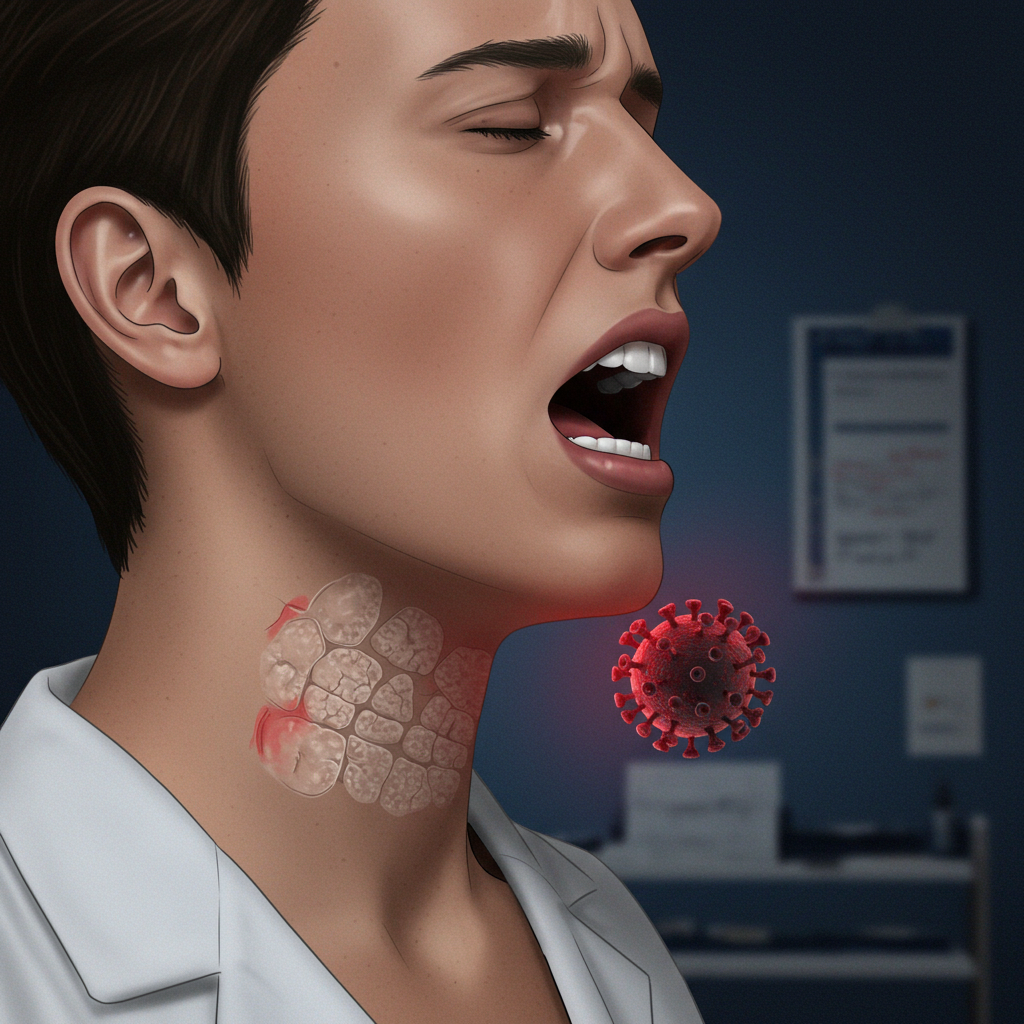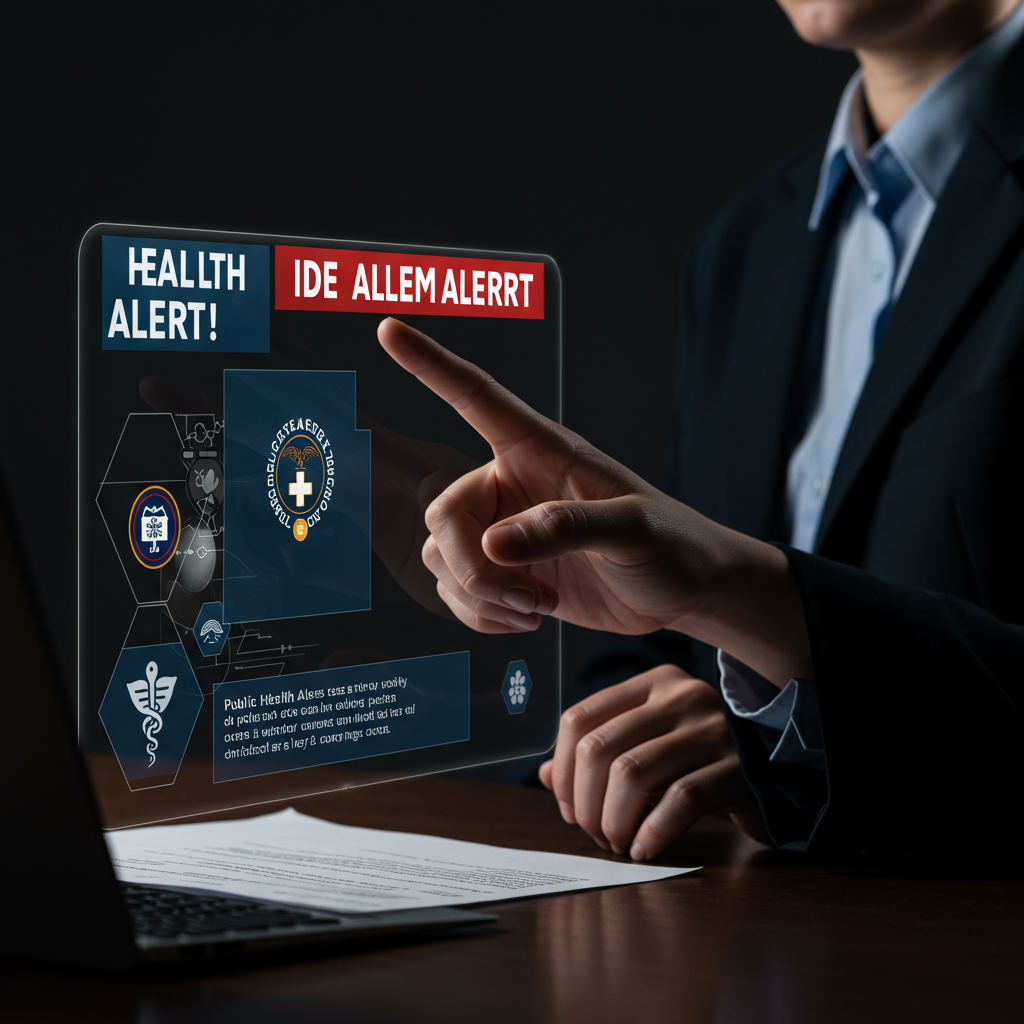A new covid-19 variant is quickly circulating in the United States, bringing with it familiar symptoms alongside one particularly intense complaint: a sore throat so severe some describe it feeling like “razor blades.” This strain, known scientifically as NB.1.8.1 and sometimes nicknamed “Nimbus,” has now been detected in states including Rhode Island. health experts are tracking its spread and reminding the public about crucial protection measures as it becomes increasingly prevalent.
What is the New ‘Nimbus’ Variant (NB.1.8.1)?
The variant gaining attention is officially designated NB.1.8.1. Experts also refer to it informally as “Nimbus.” It represents one of the newest iterations of the SARS-CoV-2 virus causing COVID-19. First identified in China during January, NB.1.8.1 has since spread to numerous countries worldwide. It is characterized by virologists as a “slightly upgraded” version of its predecessor, LP.8.1. The World Health Organization (WHO) classified NB.1.8.1 as a “variant under monitoring” in late May, noting its rapid global spread and specific mutations.
Why Experts Call it a ‘Slightly Upgraded’ Version
NB.1.8.1 is considered an Omicron subvariant. It is derived from the recombinant Omicron variant XDV.1.5.1. The “upgrade” refers to mutations found in its spike protein. These specific mutations might potentially enable the virus to bind more effectively to human cells. This structural change could enhance its transmissibility compared to previous strains. While more research is ongoing, the variant’s rapid increase in cases suggests it is indeed highly transmissible.
How Widespread is the NB.1.8.1 Variant?
The NB.1.8.1 variant has seen a significant surge in cases both globally and within the U.S. After accounting for roughly 0% of cases in the United States through April, its presence grew rapidly. By early June, the Centers for Disease Control and Prevention (CDC) estimated it made up 37% of COVID-19 cases nationwide. This initially made it the second most prominent variant in circulation. By late June, CDC data indicated NB.1.8.1 had overtaken LP.8.1 to become the estimated dominant strain in the U.S., accounting for about 43% of cases during the two-week period ending June 21.
The variant’s spread across the country is widening. As of late June, data shared with the Global Initiative on Sharing All Influenza Data (GISAID) database confirmed its detection in at least 18 states. These include states across different regions, showing its widespread reach.
Tracking Cases in Rhode Island
Residents in New England should be aware of the variant’s presence locally. Data from the GISAID database confirms that NB.1.8.1 has been detected in Rhode Island. It has also been found in neighboring Massachusetts. Despite the arrival of this new strain, the Rhode Island Department of Health website reported that the overall transmission of COVID-19 in the state had remained steady in the recent weeks leading up to late June. However, health officials continue to monitor the situation closely.
Distinctive Symptoms: The ‘Razor Blade Throat’
Symptoms associated with the NB.1.8.1 variant largely mirror those seen with other recent COVID-19 strains. However, a particularly striking symptom reported by many individuals is a severely intense sore throat. This pain is so sharp and debilitating that some patients have described it vividly as feeling like having “razor blades” in their throat. This specific descriptor has been widely reported in relation to NB.1.8.1.
Other common symptoms reported with this variant typically include:
Mild cough
Fever
Muscle aches or body aches
Nasal congestion or runny nose
Fatigue
Headache
Shortness of breath (less common in mild cases)
New loss of smell or taste (less common with newer variants)
Understanding Severity and Vaccine Effectiveness
The potential severity of illness caused by NB.1.8.1 compared to other variants is a key concern. As of late May, the World Health Organization evaluated the additional public health risk posed by this variant as “low at the global level.” There is currently no evidence suggesting that NB.1.8.1 causes more severe disease than previous strains of COVID-19. However, its high transmissibility means it can still contribute to increased case numbers.
Regarding protection, health experts continue to emphasize the importance of vaccination. Updated COVID-19 vaccines remain the best defense against severe illness, hospitalization, and death from COVID-19. The WHO’s May report indicated that currently approved COVID-19 vaccines are “expected to remain effective to this variant against symptomatic and severe disease.” Eligibility guidelines for vaccines are updated periodically, and officials urge individuals to stay current with recommended shots based on their age and risk factors. Population immunity from prior infection or vaccination is high in the U.S., which experts believe may help mitigate the severity of any future surge driven by variants like NB.1.8.1, though immunity does wane over time.
Testing and Protection Measures
If you experience symptoms consistent with COVID-19, testing is recommended. People can obtain readily available at-home COVID-19 tests for rapid results. Alternatively, individuals can seek testing through their respective healthcare providers. While government programs offering free mailed at-home tests have largely ended, options for accessing tests at low or no cost may still be available through health insurance or local programs.
Beyond vaccination and testing, basic public health measures remain important. Isolating when sick helps prevent further spread. Wearing masks in crowded or indoor settings and practicing social distancing can also reduce transmission risk.
What Does This Mean for Rhode Island?
The presence of the highly transmissible NB.1.8.1 variant in Rhode Island means residents should remain vigilant. While state data reported steady transmission recently, the situation can change rapidly as a new variant spreads. Staying informed about local transmission levels is advisable. Residents should continue to follow health recommendations, including staying up-to-date on vaccinations and testing if symptoms develop. Understanding the potential for symptoms like the distinctive “razor blade throat” can help individuals recognize possible infection.
Frequently Asked Questions
What symptoms are most common with the new NB.1.8.1 COVID variant?
The NB.1.8.1 variant, also known as Nimbus, presents symptoms similar to other COVID-19 strains. These often include mild cough, fever, muscle aches, nasal congestion, headache, and fatigue. However, a particularly severe sore throat is frequently reported. This intense symptom is often described by those affected as feeling like “razor blades” in their throat.
Has the NB.1.8.1 ‘Nimbus’ variant been detected in Rhode Island?
Yes, data confirms the NB.1.8.1 variant has reached Rhode Island. According to the Global Initiative on Sharing All Influenza Data (GISAID) database, the variant has been found in the state, as well as in Massachusetts. While the Rhode Island Department of Health reported steady overall COVID-19 transmission recently, the presence of this new strain indicates it is circulating locally.
Should I get an updated COVID-19 vaccine to protect against the NB.1.8.1 variant?
Health experts recommend staying current with updated COVID-19 vaccines. The World Health Organization has indicated that currently approved vaccines are expected to remain effective against the NB.1.8.1 variant, especially in preventing severe illness and hospitalization. Vaccination provides crucial protection against current and emerging strains of the virus.
Conclusion
The emergence and rapid spread of the NB.1.8.1 “Nimbus” variant, particularly its arrival in states like Rhode Island and association with a distinct “razor blade” sore throat, underscore the ongoing evolution of the COVID-19 virus. While classified as low risk globally regarding severity, its high transmissibility warrants attention. Staying informed about symptoms, maintaining current vaccination status, and utilizing testing when symptomatic remain key strategies for individuals to protect themselves and their communities. As the variant continues to circulate, health officials will monitor its impact and update guidance as needed.



